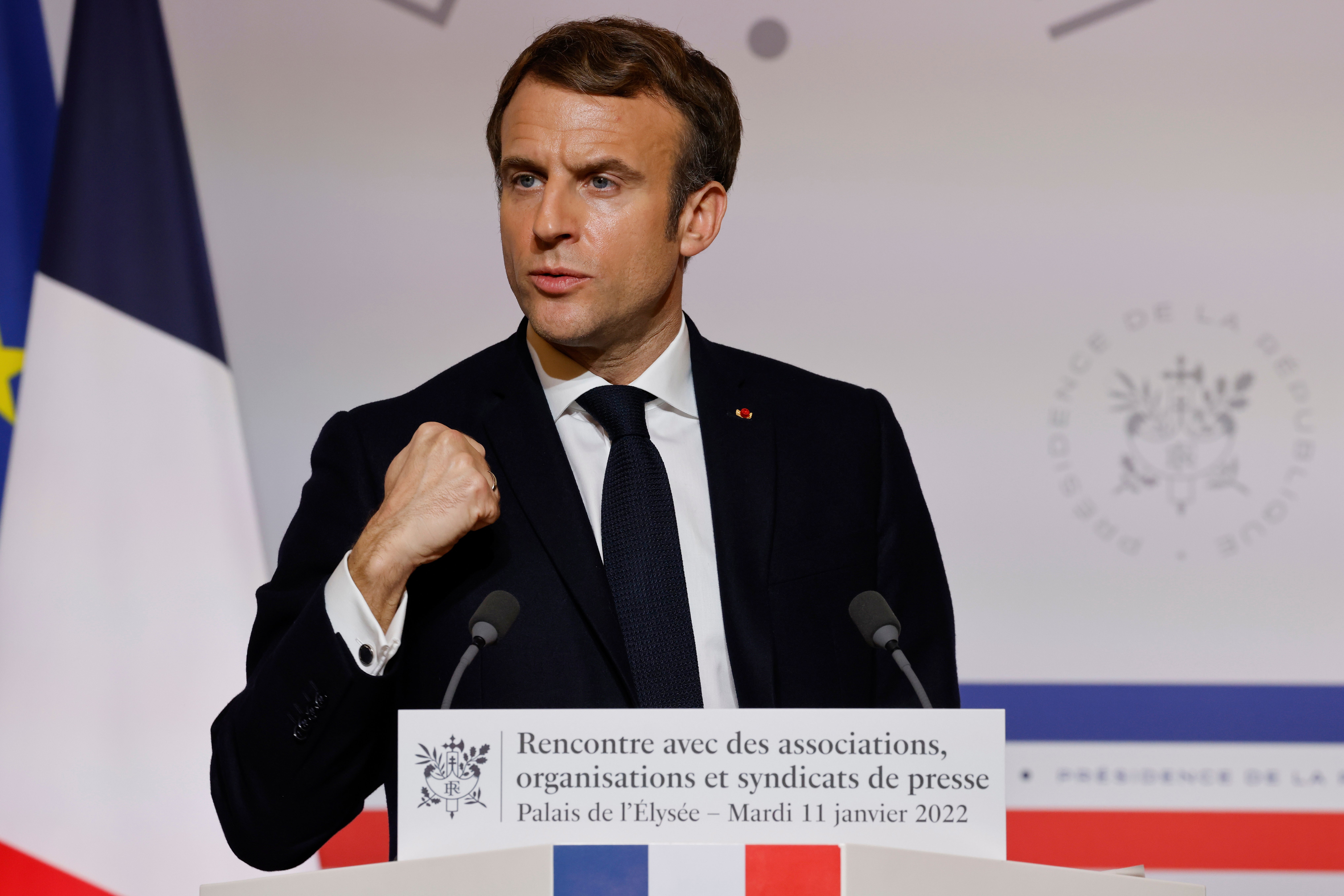Macron warns against fake news ahead of French election
French President Emmanuel Macron says people spreading fake news online should be held accountable and possibly brought to justice

Your support helps us to tell the story
From reproductive rights to climate change to Big Tech, The Independent is on the ground when the story is developing. Whether it's investigating the financials of Elon Musk's pro-Trump PAC or producing our latest documentary, 'The A Word', which shines a light on the American women fighting for reproductive rights, we know how important it is to parse out the facts from the messaging.
At such a critical moment in US history, we need reporters on the ground. Your donation allows us to keep sending journalists to speak to both sides of the story.
The Independent is trusted by Americans across the entire political spectrum. And unlike many other quality news outlets, we choose not to lock Americans out of our reporting and analysis with paywalls. We believe quality journalism should be available to everyone, paid for by those who can afford it.
Your support makes all the difference.French President Emmanuel Macron said people spreading fake news online should be held accountable and possibly brought to justice, an issue that is becoming even more significant ahead of the country’s presidential election in April.
In a speech Tuesday in Paris Macron warned against the threat to democracy caused by online misinformation and fake news. He suggested new laws should allow internet platforms, influencers and people getting attention online to be held accountable in France, just like journalists are.
“It must be the same for foreign media, which are authorized to circulate news on the French territory,” he added.
A 1881 law established press freedom in France while introducing rules against defamation and hate speech.
Macron also warned that Western democracies are currently not strong enough to face “propaganda actors financed by foreign authoritarian regimes, which do not comply with accountability procedures and journalistic ethics."
“We must also know how to protect ourselves against foreign interference," he said.
In 2017, a hack and a massive document leak hit Macron’s presidential election campaign just two days before his victory. The use of bots raised questions about the involvement of groups linked to Russia Moscow denied any involvement.
Macron's speech comes after he received a report he commissioned in October over the potential consequences of fake news, including last year's Jan. 6 riot at the U.S. Capitol.
The report released Tuesday made a series of recommendations, from teaching children to question what they see in social media to better protecting elections against foreign interference and sanctioning those who disrupt public order by spreading fake news.
Sociologist Gérald Bronner, head of the committee in charge of the report, said any moves must be balanced with the need to preserve the freedom of expression.
“Our recommendations therefore are not meant to eradicate any news-related problems," he said. “But (they are meant) to limit the spread of contents that are damaging to democratic life, to deter malicious behavior, to sanction illegal practices."
Social science researcher Laurent Cordonier, a committee member, said “a small number of fake, misleading news can have serious consequences" and can radicalize certain groups.
"That’s what we saw, for example, with the events at the Capitol in the United States," he said.
The French government last year created an agency to combat foreign disinformation and fake news.